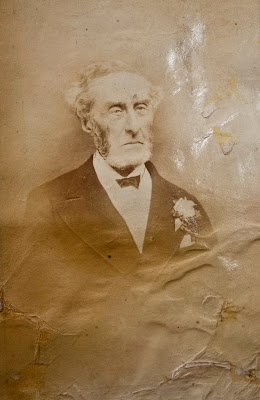Lord Shaftesbury and the Manchester Refuges
I thought I’d talk this week about some leading figures in nineteenth century England who had an interest in the work of the Manchester and Salford Boys’ and Girls’ Refuges and Homes. Today we turn to Anthony Ashley Cooper, 7th Earl of Shaftesbury, English politician, philanthropist and social reformer.
Lord Shaftesbury, 1801-1885
Lord Shaftesbury is a well known figure in social reform. He spent many years campaigning for better care of those deemed to be insane and who until Shaftesbury’s work were living in ‘madhouses’, often in appalling conditions. Ashley was also heavily involved in improving factory conditions for children. He campaigned for a ‘ten hour act’, preventing anyone under the age of 18 working more than ten hours a day. This came into being in 1847. He also outlawed the employment of women and children in coal mines and prevented boys being worked as chimney sweeps. In 1844 he became president of the Ragged School Union stating:
"If the Ragged School system were to fail I should not die in the course of nature, I should die of a broken heart."
- Georgina Battiscombe, Shaftesbury: A Biography of the Seventh Earl. 1801-1885 (London: Constable, 1974), p. 196
“When [I] first came to Manchester there was little or nothing of this description being done, but [I] now find the inhabitants of this great city more active perhaps than those of any other part of the world in every operation which was for the honour of God and for the welfare of man.”
- Lord Shaftesbury - Manchester Courier, 9 July 1883
He also visited the orphan homes on George Street and expressed his delight at the family style atmosphere and care given to the children.
“His children shall have a place of Refuge.”



Comments
Post a Comment
Like to know more about a certain home or period in the Together Trust's history? Why not comment and let us know.
If you have a personal or more specific enquiry please see our 'Contact Us' section at the top of this page to get in touch via email.